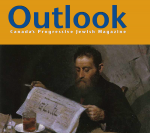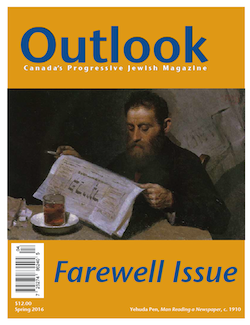Women and their allies across North America marched last Saturday in a massive show of feminist and progressive activism. It was the second annual such event, the first one coming the day after U.S. President Donald Trump’s inauguration last year.
At the Los Angeles Women’s March, actor Scarlett Johansson, who is Jewish, told the audience that she became part of the movement because she felt a rage in her on behalf of women who have been abused and because of things that have happened to her in the past.
“Suddenly, I was 19 again and I began to remember all the men who had taken advantage of the fact that I was a young woman who didn’t yet have the tools to say no, or understand the value of my own self-worth,” Johansson said.
Johansson’s experience is one of millions that have been shared in recent months since the advent of the #MeToo movement. But it was a message that was not heard by all.
Because Johansson was scheduled to speak at the event, Palestinian women’s groups boycotted it. One group accused Johansson of “unapologetic support of illegal settlements in the West Bank.”
The Palestinian groups’ complaint, ostensibly, is that Johansson was a spokesperson for SodaStream, which produces an at-home beverage carbonation system. The fact that SodaStream was based in Maale Adumim, a West Bank Jewish settlement, made it a target for BDS, the movement to boycott, divest from and sanction Israel.
The Palestinian American Women’s Association declared: “While her position may not be reflective of all organizers at the Women’s March Los Angeles Foundation, PAWA cannot in good conscience partner itself with an organization that fails to genuinely and thoughtfully recognize when their speaker selection contradicts their message.”
In a free country like the United States, anyone is free to boycott anything. The Palestinian women’s groups were fully within their rights to stay home. But the idea that Johansson was not a legitimate voice to be heard at the rally because she does not condemn Jewish settlements in the West Bank is a bit of a stretch.
If Johansson’s association with SodaStream was the real reason the Palestinian groups stayed home, as they say it is, it presents an opportunity to reflect on a bit of recent history. In one of their few successful campaigns, BDS managed to force SodaStream to close its West Bank plant, causing unemployment for 500 Palestinians who had worked there. Some achievement.
However, something potentially more significant may be afoot, which has nothing to do with SodaStream or settlements at all.
The Palestinian movement is trying to co-opt the progressive and feminist movements in the name of a nationalist movement that gives no indication that it would, if successful, reflect anything like what North Americans would consider a progressive or woman-friendly independent country.
One of the things that progressive people have come to accept, with much thanks to #MeToo, is that intent sometimes matters less than impact. We have come to accept, for instance, that what a man might call “persistent flirtation” can be experienced by women as coercion, intimidation or worse.
Palestinian groups – and the progressive and feminist groups they infiltrate – should be conscious that what is intended as criticism of Israel, whether they like it or not, impacts on Jews. Of course, not all Jews are Zionists. Nonetheless, when you attack Israel, Jews feel it.
Consider from where we’ve come. A few short years ago, most “pro-Palestinian groups” insisted they didn’t oppose Israel’s existence, they were merely criticizing certain policies of the Israeli government. Now, it is extremely common for people to express outright antipathy to Zionism. Indeed, Zionism is a dirty word among many of the people who organized and participated in the marches last weekend. This is a far step from criticizing certain policies. To oppose Zionism is to oppose the existence of a Jewish state.
The Palestinian movement is trying to kick the Zionists (and that includes most North American Jews) out of the progressive and feminist movements. Is that OK with progressives? Is that OK with Jews?
If both sides don’t do something about it, Zionists and Jews are going to have a sworn enemy on the left and the left is going to be known as a no-go zone for Jews and Zionists. Who thinks that’s OK?


 “Looking back, we are proud of having given a home to diverse voices in the left and Jewish communities: liberal Zionist, non- and anti-Zionist, Yiddishist, Marxist, feminist, anarchist, environmentalist, social democratic,” he continues. “We have covered and reflected the Canadian and international scene, including labor struggles, environmental issues, women’s issues, issues of sexuality, gender, human rights and civil liberties. We have hosted lively, often impassioned, debates on many issues, and we hope they have usually been respectful as well.
“Looking back, we are proud of having given a home to diverse voices in the left and Jewish communities: liberal Zionist, non- and anti-Zionist, Yiddishist, Marxist, feminist, anarchist, environmentalist, social democratic,” he continues. “We have covered and reflected the Canadian and international scene, including labor struggles, environmental issues, women’s issues, issues of sexuality, gender, human rights and civil liberties. We have hosted lively, often impassioned, debates on many issues, and we hope they have usually been respectful as well.